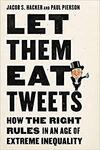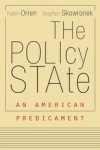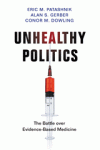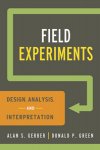Publications
About Our Publications
On this page you will find a list of publications by ISPS Affiliates, including peer-reviewed journal articles, policy briefs, and working papers.
When possible, Publications are linked to Projects and Data via the ISPS KnowledgeBase.
| Title | Author(s) |
Discipline |
Publication | Year |
|---|---|---|---|---|
| Policy Misperceptions and Support for Gun Control Legislation |
Peter M. Aronow and Benjamin T. Miller |
Political Science | The Lancet | 2016 |
| Do Congressional Candidates Have Reverse Coattails? Evidence from a Regression Discontinuity Design |
David E. Broockman |
Political Science | Political Analysis | 2009 |
| Explaining Support for Combatants during Wartime: A Survey Experiment in Afghanistan |
Jason Lyall, Graeme Blair, Kosuke Imai |
Political Science | American Political Science Review | 2013 |
| Response to Franz, Freedman, Goldstein, and Ridout |
Jonathan S. Krasno, Donald P. Green |
Political Science | Journal of Politics | 2008 |
| Messages Designed to Increase Perceived Electoral Closeness Increase Turnout |
Daniel R. Biggers, David J. Hendry, and Gregory A. Huber |
Political Science | American Politics Research | 2023 |
| The Policy Basis of Measured Partisan Animosity in the United States |
Lilla V. Orr and Gregory A. Huber |
Political Science | American Journal of Political Science | 2020 |
| What Have We Learned about Gender from Candidate Choice Experiments? A Meta-Analysis of Sixty-Seven Factorial Survey Experiments |
Susanne Schwarz and Alexander Coppock |
Political Science | Journal of Politics | 2022 |
| The Federal Spending Paradox: Economic Self-Interest and Symbolic Racism in Contemporary Fiscal Politics |
Katherine Krimmel and Kelly Rader |
Political Science | American Politics Research | 2017 |
| Affect, Social Pressure and Prosocial Motivation: Field Experimental Evidence of the Mobilizing Effects of Pride, Shame and Publicizing Voting Behavior |
Costas Panagopulos |
Political Science | Political Behavior | 2010 |
| Corruption and Inequality at the Crossroad: A Multi-Method Study of Bribery and Discrimination in Latin America |
Brian J. Fried, Paul Lagunes, Atheendar Venkataramani |
Political Science | Latin American Research Review | 2010 |
| A Field Experiment on Legislators’ Home Styles: Service versus Policy |
Daniel Butler, Christopher Karpowitz and Jeremy Pope |
Political Science | Journal of Politics | 2012 |
| Price and Party: The Importance of Partisanship and Cost in American Climate Public Opinion |
Eric G. Scheuch |
Political Science | PLOS Climate | 2024 |
| Perceptions of Program Abuse and Support for Social Insurance |
Scott E. Bokemper, Albert H. Fang, and Gregory A. Huber |
Political Science | American Politics Research | 2020 |
| Does Incarceration Reduce Voting? Evidence about the Political Consequences of Spending Time in Prison |
Alan S. Gerber, Gregory A. Huber, Marc Meredith, Daniel R. Biggers, and David J. Hendry |
Political Science | Journal of Politics | 2017 |
| The Persuasive Effects of Direct Mail: A Regression Discontinuity Based Approach |
Gerber, Alan S., Daniel P. Kessler and Marc Meredith |
Political Science | Journal of Politics | 2011 |
| Big Five Personality Traits and Responses to Persuasive Appeals: Results from Voter Turnout Experiments |
Alan S., Gerber, Gregory A. Huber, David Doherty, Conor M. Dowling, Costas Panagopoulos |
Political Science | Political Behavior | 2012 |
| City Limits to Partisan Polarization in the American Public |
Amalie Jensen, William Marble, Kenneth Scheve & Matthew J. Slaughter |
Political Science | Political Science Research and Methods | 2021 |
| Hookworm Eradication as a Natural Experiment for Schooling and Voting in the American South |
John Henderson |
Political Science | Political Behavior | 2018 |
| Randomness Reconsidered: Modeling Random Judicial Assignment in the U.S. Courts of Appeals |
Matthew Hall |
Political Science | Journal of Empirical Legal Studies | 2010 |
| A Note on Close Elections and Regression Analysis of the Party Incumbency Advantage |
Peter M. Aronow, David R. Mayhew and Winston Lin |
Political Science | Statistics, Politics, and Policy | 2015 |
ISPS Working Paper Series
ISPS advances interdisciplinary research in the social sciences that aims to shape public policy and inform democratic deliberation. The ISPS network includes scholars and students from many departments in the Faculty of Arts and Sciences and from Yale’s graduate and professional schools as well as select experts from other institutions. The ISPS Working Paper Series provides a platform for ISPS affiliates to make their work available for public consumption and discussion.
Featured Books by ISPS Faculty
ISPS Sponsored Publications
ISPS Politics & Policy Book Series: A series striving to place policy- and law-making in historical and comparative perspective, reflecting the broad, multidisciplinary character of ISPS.
ISPS Journal: A biannual publication that serves to highlight ISPS scholars’ publications and as a development piece for foundations and interested donors.
GOTV website: A website compiling results from a wide array of voter mobilization field experiments. Findings from these scientifically measured studies of various Get-Out-the-Vote methods offer valuable insight into which methods are most effective in mobilizing voter turnout (Note: the website indexes GOTV experiments published before 2006).
The Bulletin of Yale University includes several issues devoted to ISPS (PDF): 2000-2002, 2002-2004, 2004-2006, and 2006-2008.






